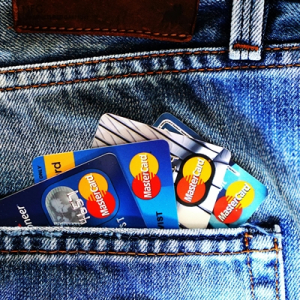CONTACT US
info@bidaiondo.com

Mastercard commits to 100% e-commerce tokenization in Europe by 2030

Mastercard has announced its goal of achieving 100% tokenization of e-commerce in Europe by 2030, which will mean gradually eliminating the manual introduction of cards, as reported in a statement.
Introduced in 2014, the company's tokenization service today secures 25% of all e-commerce transactions globally, with adoption accelerating 50% year on year.
As payments become more complex, Mastercard says it is leveraging tokenization, streamlined guest checkout and payment access keys to create a “consistent” experience across devices, browsers and operating systems.
In the statement, the company explains that tokenization replaces the card number, which is usually between 16 and 19 digits, with a randomly generated one. In 2013, Mastercard developed the tokenization standard, which was later adopted by EMVCo, the consortium that manages global payment standards.
Currently, to eliminate manual card entry, the company is facilitating the integration of 'Click to Pay', its online payment tool, in online stores and allowing banks to help users register their cards.
"The fusion of tokenization with Click to Pay and access keys or payment passkeys - which take advantage of biometric authentication based on online mobile devices to eliminate passwords and single-use codes - benefits the entire financial ecosystem: users will be able to experience faster and more secure payments; merchants will see increased sales, fraud protection and higher approval rates; and issuers will gain customer security and increased card usage," the company defends.
https://www.europapress.es/economia/finanzas-00340/noticia-mastercard-compromete-alcanzar-100-tokenizacion-comercio-electronico-europa-2030-20240612184129.html
Last news
IA contra IA: así es el sistema con el que OpenAI intenta blindar a su navegador agéntico Atlas.

Meta compra Manus en una operación que superaría los 2.000 M$

online trading systems.
 We show you the best way to market products and services online, through a professional service of installation, management and maintenance of your virtual store
We show you the best way to market products and services online, through a professional service of installation, management and maintenance of your virtual store
We program to suit you
 We help you achieve operational excellence in all your business processes, whether they are production, logistics, service or office processes. In addition, we assure you to maintain continuous improvement in your management.
We help you achieve operational excellence in all your business processes, whether they are production, logistics, service or office processes. In addition, we assure you to maintain continuous improvement in your management.
Bidaiondo Articles
How to use Gemini to detect images and videos generated with Google's AI.

Advances in AI are giving works generated with this technology increasingly realistic quality, which can pose a significant challenge when distinguishing between reality and artificial content. To help users in this regard, Google has integrated into Gemini the ability to detect whether a video was edited or created using one of Google's AI tools. This feature has been rolled out in all languages and countries supported by the Gemini app, i...
Google concludes its December core update: the third and final one of 2025

Google almost missed the deadline for its last core update of the year. The tech giant activated its major update on December 11th, along with a prediction that it would take about three weeks to complete. Had this timeframe been strictly adhered to, we would be bringing you this news on the first day of 2026, but it was ultimately rolled out in 18 days, finishing on December 29th. Through its LinkedIn account, Google explained that this core upd...

ABOUT US
FILES

Welcome to Bidaiondo, dear user
BIDAIONDO SL, as the party responsible for the website www.bidaiondo.com, uses its own operating cookies and those of third parties of an analytical nature to allow the use of the website, analyze our services and show you information related to your preferences based on a profile drawn up from of your browsing habits (for example: pages visited). Please bear in mind that, if you do not activate some types of cookies, such as operational and analytical cookies, your experience of using this website may be affected. You can obtain more information and configure your preferences in the CONFIGURE option that appears below, you can reject cookies in the REJECT AND CLOSE option or accept all cookies and continue browsing in the ACCEPT AND CLOSE option.
So do you want to know more?
Data privacy seems important to you, and it is to us too. We store cookie data for 13 months. If you want to know more, you can visit our pages Privacy Policy y Cookies policy. Do you know what cookies are? Cookies are files that are used by virtually all websites. When browsing our page, they are installed in your browser or device to ensure that the website works correctly and store information about your visit. The data provided by cookies treat the user anonymously and in no case do they store personal information.
The data collected by the cookies we use are:
- Addresses IP
- References of visited pages
- References of downloaded files
- The website itself www.bidaiondo.com
- https://www.moz.com
- https://secure/europeanssl.eu

 Spanish
Spanish













